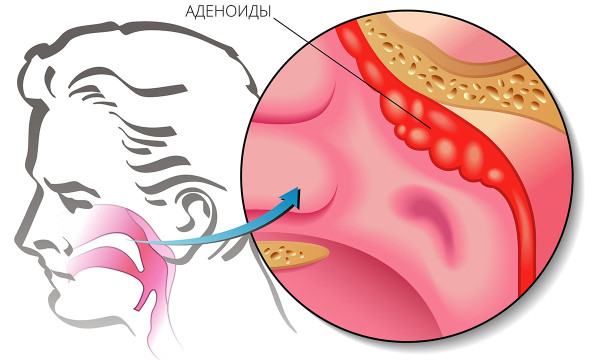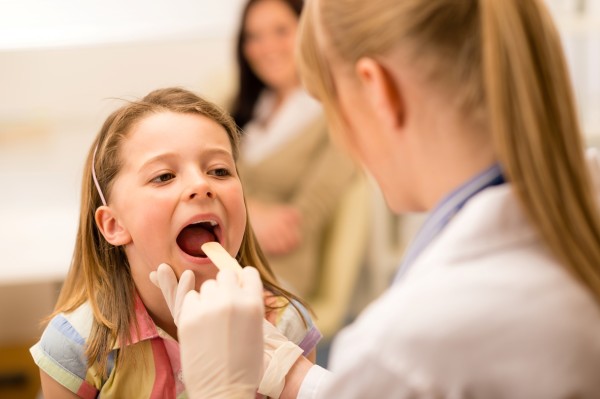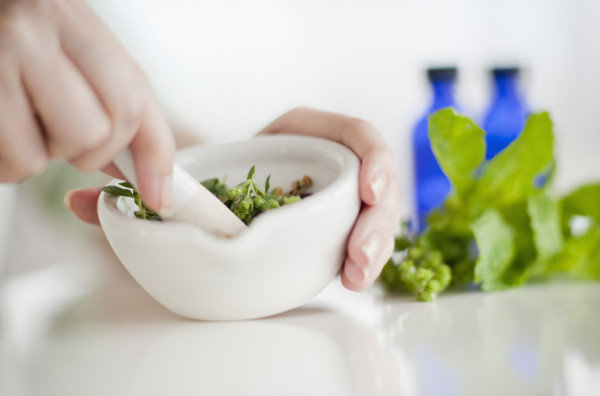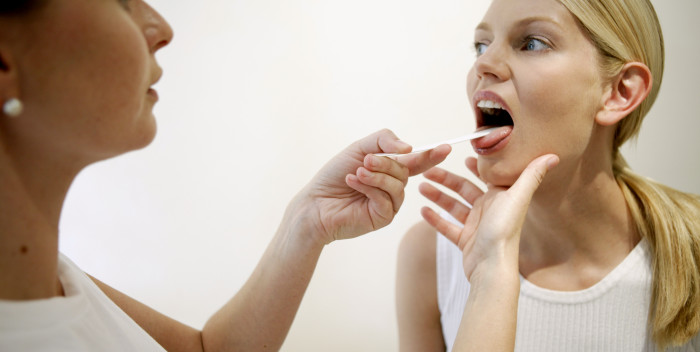Inflammation of the adenoids: causes and treatment
Adenoids are called the tonsils of the nasopharynx, which form a special ring that protects the body from pathogenic microbes. They help regulate the immune system, so inflammation of the adenoids can cause serious health problems. For this reason, if inflammation of the adenoids is suspected, it is necessary to immediately diagnose and begin treatment.
Content
Inflammation of the adenoids: symptoms
Inflammation of the adenoids is a disease that develops over a fairly long time. The onset of the disease can be determined by the presence of the following signs:
- Hearing problems.
- Headache.
- Great weakness.
- Cough.
- Difficulty breathing.
- Persistent runny nose, which practically does not respond to medication.
- A nasal tone in the voice due to nasal congestion. For the same reason, a person begins to breathe through his mouth.
- Sleep disturbance.
- The appearance of tearfulness, irritability.
 Most often, inflammation of the adenoids occurs in children from 3 to 12 years old. Nevertheless, sometimes this ailment can occur in adults, the symptoms are almost the same.
Most often, inflammation of the adenoids occurs in children from 3 to 12 years old. Nevertheless, sometimes this ailment can occur in adults, the symptoms are almost the same.
The course of the disease is usually characterized by several stages. At the first, initial stage, it becomes harder for the patient to breathe during sleep, so breathing through the mouth occurs. Sometimes there is mucous discharge, but during the day the patient feels normal.
In the second stage, all symptoms become worse. The mouth is open almost constantly, due to poor air access, short-term respiratory stops, snoring appear. For this reason, a person does not get enough sleep, which leads to weakness and chronic fatigue.
The third stage of the development of the disease is the most severe. The patient begins to hear poorly, he practically cannot breathe through his nose.
Inflamed adenoids: causes
The reasons are very different. Inflammation of the adenoids is an independent disease, but inflammatory processes occurring in the human body can also provoke it.
In children, the disease can develop when an infection enters the body, an allergic reaction to some foods, severe hypothermia. Even poor ecology, as well as hereditary predisposition, can contribute to the onset of the disease. 
In adults, such factors can be allergic reactions or infectious or viral diseases transferred in childhood. In addition, the risk group includes people suffering from obesity, disruption of the endocrine system, chronic rhinitis or have a genetic predisposition. There are also cases of relapses of the disease: for example, a person has already had inflammation of the adenoids earlier, but due to a poorly performed operation, lymphoid tissues began to grow again.
If delayed with treatment, inflammation of the adenoids can have serious consequences. For adults, this is fraught with hearing impairment and frequent infectious diseases. For children, the negative consequences are even greater: speech impairment occurs, the supply of oxygen to the brain deteriorates, as a result of which the child may study worse, become lethargic, apathetic. May appear allergic reactions, frequent colds. Therefore, it is important to start fighting the disease as early as possible.
Treatment of inflammation of the adenoids
Treatment with medications is carried out if the size of the adenoids is not too large, when there are no special problems with hearing and breathing, and the nasal mucosa is practically not inflamed. 
Of the drugs, antihistamines are usually used, since it is very important to relieve swelling and inflammation. One of these drugs is diazolin, which reduces mucus production and suppresses pain. In addition, various topical antiseptics are used.
Nowadays, laser therapy is often used in the treatment of adenoids - a treatment in which the tissues of the tonsils and the nasal mucosa are exposed to a stream of light rays. Under the influence of laser radiation, the work immune system... To achieve the effect, you need to carry out from 7 to 15 daily sessions. During the year, such therapy is recommended 3-4 times.
If medical treatment of the adenoids does not give good results or serious complications have arisen, they must be removed. The removal operation is performed only after the tests and under local anesthesia. Most often it goes well, and after a few hours the patient can go home.
After the operation, you need to adhere to certain rules: avoid physical activity, too cold and hot food, as well as salty, greasy and spicy (anything that can irritate the throat). In addition, you need to protect your vocal cords and speak softly.
There are contraindications to operations, and there are many of them: hemophilia, leukemia and other blood diseases, diseases of the cardiovascular system, infectious diseases in an acute form. In addition, it is highly undesirable to carry out the operation during pregnancy or breastfeeding, as well as in the presence of pathologies in the renal system. 
Alternative treatment of adenoids
Sometimes the use of folk remedies gives a good effect. So, essential oil of thuja is very useful, which helps relieve swelling and constricts blood vessels.
In addition, the following means provide tangible help to the body:
- Baths with the addition of essential oils: eucalyptus, chamomile, sage.
- Warm milk with added turmeric.
- Kalanchoe juice, which is diluted in half with water and instilled into both nostrils, 2-3 drops.
- Gargle with green tea three times a day. It is also very good to use decoction of thyme, oak bark or chamomile.
- It is useful to give your child a mixture of lemon and grated garlic after dinner.
- A mixture of honey and lemon juice (one teaspoon each), which must be diluted with a glass of warm water, also helps.
 Herbal medicine is considered a good effective way. For example, decoctions of ivy budra help, over which you need to breathe for several days for two to three weeks. It is also useful to rinse the nasopharynx with such a solution: 20 drops of propolis tincture, a quarter teaspoon of soda and a glass of water.
Herbal medicine is considered a good effective way. For example, decoctions of ivy budra help, over which you need to breathe for several days for two to three weeks. It is also useful to rinse the nasopharynx with such a solution: 20 drops of propolis tincture, a quarter teaspoon of soda and a glass of water.
Prevention of inflammation
To avoid this unpleasant and rather dangerous disease, it is important to take preventive measures. On this score, doctors give the following recommendations:
- Support your body with regular vitamin supplements. You can also take medicines that increase immunity, for example, immunal, but before taking it, be sure to consult your doctor.
- Introduce more fresh vegetables, fruits, and juices into your diet. The intake of vitamins into the body, especially in spring and autumn, will also help to strengthen the immune system. But it is important to remember that the amount vitamins necessary for children much lower than for adults. Therefore, you should not be zealous either.

- Temper with walks in the fresh air, exercise, regular rubdowns.
- Try not to overwork yourself, follow the daily routine and the rules of a healthy diet.
Only an ENT doctor can decide which method of treatment will be effective and safe in this case. For this, a visual examination and diagnostic methods are used: usually it is X-ray or computed tomography.
A correctly diagnosed and timely treatment will allow you to cope with this problem and avoid negative consequences.


